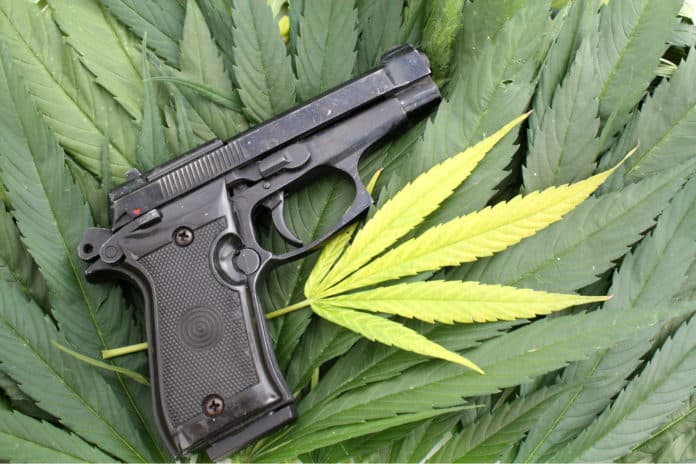AUSTIN, Texas – Those in need of relief received good news when Texas Governor Greg Abbot recently signed a medicinal cannabis bill into law. Patients thought they no longer would have to choose between access to relief through cannabis or violating the law. Now, patients face a new legal conundrum.
Texas patients are learning that their Second Amendment right to own guns is not protected if they choose to medicate with cannabis. For U.S. Army veteran Joshua Raines, who served the military for five years and suffers from PTSD as a result of a traumatic brain injury sustained in Afghanistan, it is a choice he is not willing to make.
“Why am I going to give up one of my rights because I found an organic plant that some are uncomfortable with?” Raines said according to DallasNews.com. “I’m not going to do that. I’m not going to trade my rights like baseball cards.”
The issue impacts patients across the country but is particularly relevant in Texas where owning firearms is deeply woven into the culture of the Lonestar state. Some gun rights advocates have voiced disagreement over the federal stance on medicinal cannabis and gun ownership.
“To tell Texans you can’t purchase a firearm if you have a compassionate use card is unconscionable,” said Rachel Malone, Texas director for Gun Owners of America. “We should not force people to choose between gun ownership and taking care of themselves.”
The Bureau of Alcohol, Tobacco, and Firearms (ATF) reiterated its stance against allowing cannabis patients to possess guns in a letter from 2001. Form 4473 asks applicants applying to purchase a firearm whether or not they use medicinal cannabis.
“The use or possession of marijuana remains unlawful under Federal law regardless of whether it has been legalized or decriminalized for medicinal or recreational purposes in the state where you reside,” the form reads.
Only seven states had legalized medicinal cannabis use when the ATF wrote its letter. According to ProCon, an additional twenty-six states have legalized medicinal cannabis since then.
The ATF stance may put patients in legal jeopardy and may encourage them to be dishonest when applying for a firearm or for a medicinal cannabis card. The regulation seems especially outdated since many states now allow recreational cannabis use and users do not have to disclose this to ATF.











